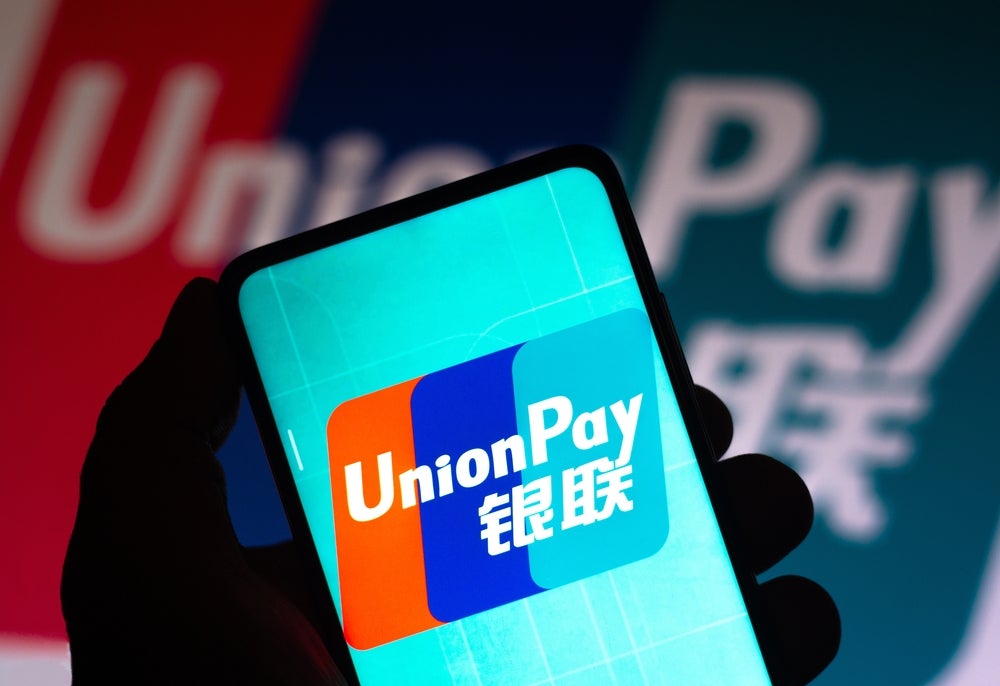Sibos brings together figures from across the financial industry annually at one of the biggest exhibition, conference and networking events in the financial world’s calendar. At this year’s event in Dubai, Francesco Burelli talks to Bank of America’s Bill Pappas about integrating new technologies into the bank’s wholesale strategy
Bank of America (BoA) is currently undergoing dramatic changes in its infrastructure and operations, motivated by today’s increasingly digitised banking environment. Bill Pappas, the chief information officer for global wholesale banking and head of the global delivery centre of expertise, explains the bank’s change in strategy.
He says: "A couple of years ago, the technology executives of BoA took a step back and set a really aggressive goal to modernise and simplify our infrastructure. This is not a big surprise, if you look at the BoA over the last 10-15 years, we grew through acquisitions, which allowed us to acquire some really good platforms.
"We started multi-year efforts to simplify the infrastructure: where we need to integrate, to invest, to reduce the cost and operational risk, most importantly, to provide very different client services from what we have done before. This simplification and transformation process has been incredibly innovative for us."
Modernisation and integration
This modernisation drive has taken the form of a three tiered approach, comprising of integrating and upgrading payment platforms, reforming the wholesale credit side of the business and continuing to innovate in the mobile and online sector. BoA’s hope is that by upgrading some of their payment platforms, they can begin to whittle down the number of systems that are not up-to-date.
How well do you really know your competitors?
Access the most comprehensive Company Profiles on the market, powered by GlobalData. Save hours of research. Gain competitive edge.

Thank you!
Your download email will arrive shortly
Not ready to buy yet? Download a free sample
We are confident about the unique quality of our Company Profiles. However, we want you to make the most beneficial decision for your business, so we offer a free sample that you can download by submitting the below form
By GlobalDataPappas says: "What really matters is our ability to be able to start integrating, replacing, and also collapsing some of the platforms that we have around payments, instant access accounts and the liquidity. All these functionalities, together with credit, and trade capabilities, will help us manage our global business across different continents, and to give our clients completely different abilities.
"There are some key benefits of the wholesale model bank, for example, global processes, regional capabilities, strategic investment around payment, liquidity, deposit and platforms.
"The advantages of these abilities are obvious: In Europe, our clients have the abilities for both credit transfers and direct debits. The other thing is scalability. Our transaction volume has been increasing; because our aggressive development capability has been growing for the last three, four years at regional, in some cases, at the country level."
The bank is also looking to its lending operations to drive forward its agenda of integration and modernisation. Pappas says: "We call it the wholesale credit transformation. How to do it? First of all, we need to look at our competitors, look at credit end to end, from sales to servicing and monitoring.
"Then, we need to figure out what platforms we need to integrate, or to retire/ improve. There are benefits of doing this, for example, automating recommendation and signature capability, which help our sale servicing from a client perspective."
Going mobile
Mobile has also been a key plank of BoA’s strategy in recent times, driving growth upwards at an impressive rate. BoA is now looking at adding functionalities to its mobile application and putting an effective security framework into place.
Pappas says that the success of their mobile app has far exceeded expectations, and emphasises its importance in BoA’s greater strategy. He says: "It is big for us; we have been implementing our mobile application, CashPro Mobile, since 2012, and it’s now completely rolled out to more than 20 countries. Since then, we have seen a tremendous amount of growth – more than $2bn so far.
"We need to have the functionalities which are able to view the account, to execute the approval of the payment transactions, while customers need to have the functionalities to reset IDs and passwords. We have also added the functionality to provide authentication through mobile."
Security is a factor that all banks who use mobile technology have been made painfully aware of over the last year. Security scares have raised questions over the safety of mobile banking and payments. Last November, NatWest’s ‘GetCash’ app fell victim to a phishing attack. A month later, during the ‘Eurograbber’ attack, fraudsters stole $48m from bank accounts across four European countries.
Bank of America had its own problems, with online and mobile phone banking services crashing on February 1 2013, causing panic amongst customers.
These instances have given BoA food for thought, the influence of which can be seen in new security strategies adopted by the bank.
Pappas says: "Now with mobile, we need to think about the security risk. We look at this in two ways. No 1 is the portability of your devices – if somebody loses it, what does that mean? No. 2 is from a system perspective – we have designed it the way that we’ve designed our internal portal.
"Both ways use multilayer approaches to ensure security and the best practice across the enterprises. For device registration, you have passwords, work flow, automatic system alerts, all of these will give you enough to make sure that you are able to replicate the security.
The mobile side of BoA’s retail operations has informed their approach in wholesale banking, Pappas says. Mobile has quickly become big business in consumer banking and now corporate and wholesale clients are demanding the same kind of services as consumers.
"Obviously, you have seen environments change so rapidly – what the device was about 12 months ago is now not sexy anymore, and we are developing those solutions that truly suit what clients want for these devices. That’s what we have learned from what we are doing on the consumer side.
"If you talk about mobile we have an amazing market in the retail space. So the process is a lot more mature than on the wholesale side."
Of the bank’s three tiered modernising programme, Pappas says: "These three big pieces of the transformation really help us to differentiate ourselves from the marketplace.
"Our commitment is to look at our infrastructure to see if it is able to modernise, to simplify, to reduce the cost, and at the same time, to improve operation risk, which is incredibly important, and we have to manage it globally as well."
Home and abroad
One of the challenges currently facing BoA is balancing home and global markets, tailoring their approach to each.
Pappas says: "If you look at this from the global perspective, we are focusing on financial Institutions and corporates. The upper end of market is based in the US, as they want to do business globally.
"So, we now focus our business on indigenous clients. That gives us the opportunities to make sure we have the right balance to be able to provide global consistency, at the same time allowing enough regional in country adaptability, but not to the point that you see some of the competitors that are really deep in some of the countries. That’s not the model we use."
To fit BoA’s business model to various foreign markets, it needs to be customised to the countries the bank is rolling it out in, yet also needs to be similar enough to their general global business model to preserve economies of scale and consistency across the bank’s operations abroad.
Pappas describes the process of trying to strike this balance between customisation and consistency. He says: "Another important thing is the customisation. Right now, if you look at what we have, this is all home grown platforms, which have served us, obviously, very well.
"Outside of the US, we only have one platform – which a lot of competitors would love. But for us, we are moving forward, from the wholesale model bank on the treasury, on the credit, we are doing a combination of build and buy.
In wholesale banking, there is a latent tension between the business model of the bank providing the services and the business model of the banks that buy them. The wholesale bank needs to offer enough customisation to satisfy its partners, but not so much that its own business model is thrown off balance.
Pappas says: "We need to be clear of how much customisation we want to be able to allow to get the benefits around globe, but at the same time to make it adaptable for us. So you won’t see us in the market being targeted in the lower end of the mid-market, you will see us targeting heavily in financial institutions, corporates, and also the high end of the market based in the US."
Customer service
Another challenge faced by BoA in its wholesale operations is how to differentiate itself from competitors, all looking to sell similar payments solutions and services to the same financial outfits. Pappas explains that the personalised service offered to clients is what makes BoA stand out from the crowd.
He says: "Service is where you differentiate. I have been very vocal with our business partners to make sure we are on the same page. We have commodity products. In treasury, a wire transfer is a wire transfer. I have been in this business long enough to know you can’t come up with any different wire or automated clearing house products.
"The answer is "how you differentiate is how you service a client". Therefore my team really knows what you call ‘the client experience’. The sales folks are going out there, they will sell the products, and then I’m going to implement, to service, and to answer the questions."
To help them provide the kind of service Pappas says marks them out, BoA enlists the help of a focus group. Pappas explains: "We also have a client advisory group that helps guide us through the functionality. That’s why clients are staying with us.
"In the mobile space, we spend a tremendous amount of time with our client advisory group, talking through what makes sense for them. Same thing for the credit side, and for the wholesale side.
"So, it is really client-centric, in terms of at what point in scale you’ll be able to reduce the cost, to simplify, to reduce the operation risk, but not to lose the intensity from the client perspective. Because if I don’t have that, somebody will go to my competitors."
Innovations
One way BoA is innovating is by using cloud-based technology to host some services. Rather than using the public cloud, BoA has plumped for an internal solution.
Pappas says: "We have prioritised the internal cloud hosting as a big piece of our strategy going forward. We decided on internal versus external because of the scale we have – there are more benefits to be had by doing it internally, because we have enough scale.
"There are three areas to be discussed before taking anything into the public cloud. One is around security, privacy; this is the No. 1 priority for clients. We need to make sure that we have the appropriate security in place. No. 2 is data, access to the data. We have the data management infrastructure to ensure access.
"The third thing I’m not comfortable with is around data movement. We do business in different countries, which means we need to have the right controls in place to ensure that we stop the movement of data.
"So, before we solve these problems, I would be very reluctant to use the public cloud from a regulatory perspective, and from a BoA perspective. That’s why our decision is going to be a private cloud versus a public cloud. Our private cloud hosting is the perfect solution for us."
Despite their innovations in other areas, BoA is not particularly invested in integrating social media with their wholesale business model. Pappas feels social media has less relevance in wholesale banking services than it does in the retail sector.
He explains: "From a banking perspective, social networking is keeping us honest, so it is one of those instant feedback providers, to make sure your process is up to speed, especially in the retail space.
"I don’t see it a lot on the wholesale banking though. That’s why having a client advisory board for us is important, we are seeking their feedback versus waiting for the social networks. I don’t see the large corporate, or mid-market clients in the social network space either. They usually call me, and call my call centre.
"I don’t see our clients getting into social media. They will absolutely pick up the phone and call. In some cases, you are a large corporate client who has a dedicated advisory group that is really taking care of the service needs.
"I don’t see this in the wholesale space, it’s very different from what I saw in the mobile space, which is going to have an impact on us."
Emerging markets
At Sibos, considering the location in Dubai, talk of emerging markets was a preoccupation in the minds of many industry figures.
Talking about the themes of this year’s Sibos, Pappas says: "When you look at the key themes they are talking about, they are primarily Cloud and Data. They talk about emerging markets, and obviously Sibos is here in Dubai."
Pappas explains that, despite the brand BoA being unavoidably identified by its country of origin, the bank sees itself as a global bank, particularly when it comes to the wholesale sector. He says:
"We consider ourselves a global business, but with a targeted strategy. In terms of the segments that we want to concentrate on, we have been very vocal – we have no retail banks outside of the US, but the focus has been around the corporates, the capital market, trading, and obviously, customer management.
"When you talk about those new markets, you need to understand them enough to know where the opportunities are and what risk capital is.
"So for us the question is not do we need to be out there or not? We are here. We have physical presence in a lot of those locations, and everybody else is looking at the emerging market. We are looking at the opportunities that we can either translate into physical presence, or actually utilise the technology to be able to provide those products there."







